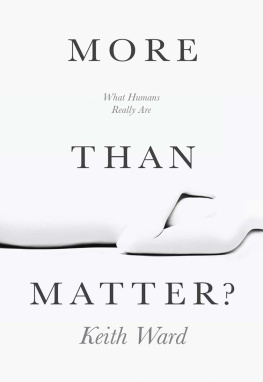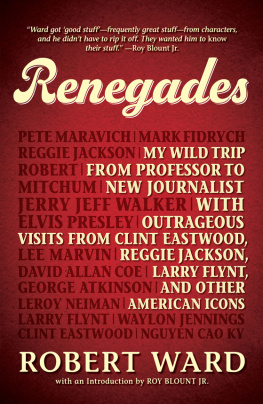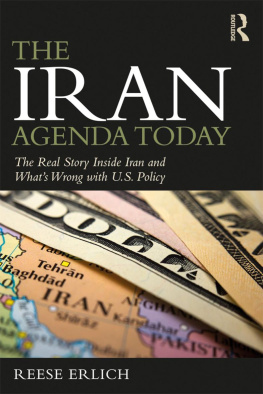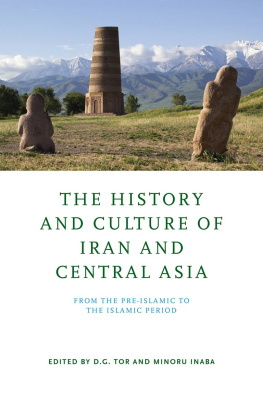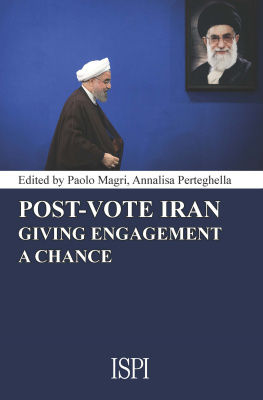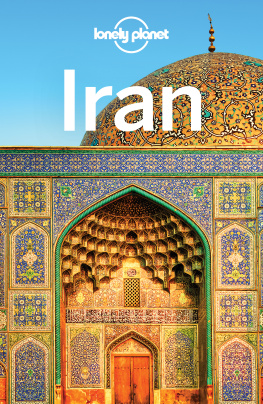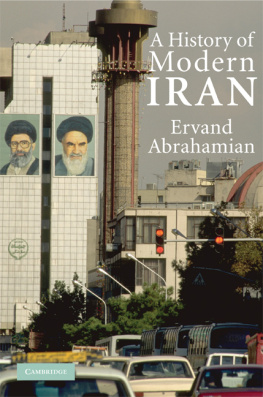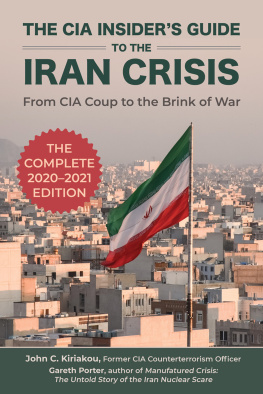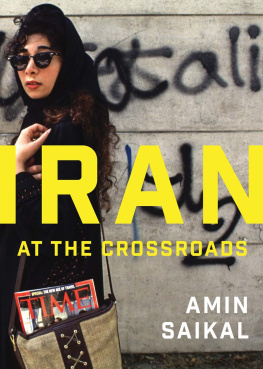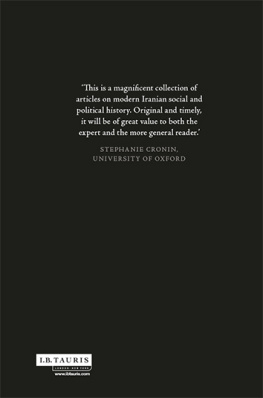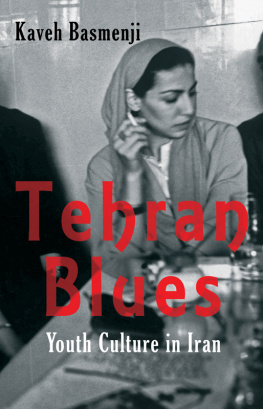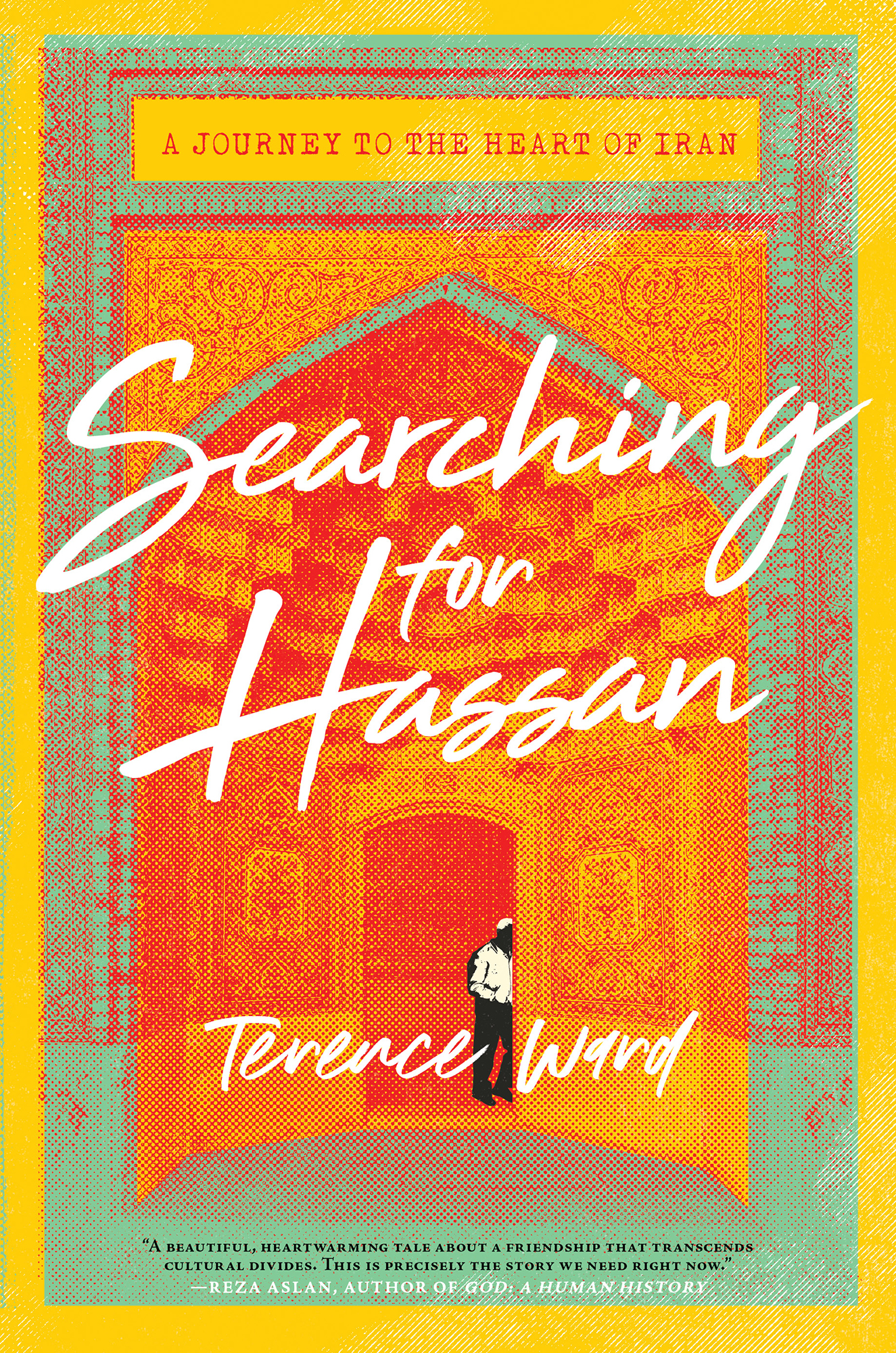Contents
Guide
Acclaim for Terence Wards
Searching for Hassan
Who had a childhood like this? Other than Nabokov
Esquire
The publication of Searching for Hassan could not have come at a more opportune time.
USA Today
Searching for Hassan should be required reading for U.S. foreign policy makers.
BookPage
A nostalgic, harrowing pilgrimage.
The New Yorker
Ward hooks the reader with his unique past and observant eye.
Detroit Free Press
A heartening testament to the enduring power of friendship and human connection, and to how bonds of loyalty and love can survive the ravages of history and time, and can bridge the deepest and most perilous divides created by politics, culture, and religion. Wards book yields telling details, revealing incidents, and deeply personal experiences, and he introduces us to men and women who are more complex and sympatheticand more like usthan we might have imagined.
Francine Prose, Elle
A powerful memoir that plumbs the depths of Iranian culture and tradition. Remarkable for its vivid prose and depth of information. A memorable journey.
Library Journal
Wards impression of Iran is far more subtle than most Westerners know. Describing a more intricate image of a nation caught in a tug of war with itself, he shows the country in all its complexity. Most Westerners would hardly recognize it.
Los Angeles Times
In Wards telling, the journey becomes a search not just for Hassan but on discovering how much of the old, aesthetic Persia remains beneath the surface of the new, ascetic Iran. The typical form of Hafezs poetry is a ghazal, or song of praise. In a sense, Searching for Hassan is itself a kind of ghazal, an unexpected ode to Iran and seems almost to have received a kind of divine blessing.
New York Times Book Review
In a time where nationalism and xenophobia are reaching alarming proportions, a novel so dedicated to transcultural exploration and integration is more relevant than ever. By revealing the humanity of a culture the West finds so threatening, Ward allows even the most bigoted among us to see past the exotic names, the political clashes and the cultural differences, to the deeper values that all cultures share: family, history and respect. Humane and even-handed, Searching for Hassan is a plea for pluralism, narrowing the cultural divide that separates the West from the Islamic World.
Birmingham Weekly
A true bridge-builder between East and West. This book could not come at a better time! Searching for Hassan can only lead to a better understanding of this complex, misunderstood part of the world, promoting, at the same time, the noble art of conversation between peoples. This is an enlightening work, in culture and history. Wards revealing account reflects a profound understanding of Iranian traditions and ways of life through real human experiences.
Prince Hassan bin Talal of Jordan
Searching for Hassan blends wide ranging literary allusions with endearing family interactions. For something very unusual happened in that Persian garden more than 30 years ago: the family of an American Christian oil company executive and the family of an Iranian Muslim cook became one.
Gelareh Asayesh, Washington Post Book World
As an admirer of Iranian culture, I have taken immense pleasure reading this beautifully written tale of love and hope and nostalgia. Thank you for this journey into the soul of a great people.
Dominique Lapierre, author of The City of Joy, Freedom at Midnight, and Is Paris Burning?

An Imprint of Simon & Schuster, Inc.
1230 Avenue of the Americas
New York, NY 10020
www.SimonandSchuster.com
Copyright 2002, 2020 by Terence Ward
Originally published in 2002 by Houghton Mifflin Company, New York
All rights reserved, including the right to reproduce this book or portions thereof in any form whatsoever. For information address Simon & Schuster Subsidiary Rights Department, 1230 Avenue of the Americas, New York, NY 10020
First Tiller Press hardcover edition February 2020
TILLER PRESS and colophon are trademarks of Simon & Schuster, Inc.
For information about special discounts for bulk purchases, please contact Simon & Schuster Special Sales at 1-866-506-1949 or .
The Simon & Schuster Speakers Bureau can bring authors to your live event. For more information or to book an event contact the Simon & Schuster Speakers Bureau at 1-866-248-3049 or visit our website at www.simonspeakers.com.
Jacket design by Patrick Sullivan
Author photo by Jane Hawkins
Iranian doorway by Stefano Baldini/Alamy;
Photo border by Valentin Agapov/Shutterstock; Silhouette by Shanya/Shutterstock; Hassan photo courtesy of Ward Family
Library of Congress Cataloging-in-Publication Data has been applied for.
ISBN 978-1-9821-4277-3
ISBN 978-1-9821-4281-0 (ebook)
To Donna, Patrick, Idanna, my three brothers and the Ghasemi family
Neither fame nor fortune guided us to this gate, we approach as refugees, here guided by fate.
H AFEZ
Preface
Many moons have passed since the first edition of this book. When I put pen to paper, I hoped to shed light on a beguiling culture and people that Western media had widely demonized since 1979the year of the Iranian Revolution. In narrating this chronicle, I delved into the countrys millennial history and culture, citing those timeless poets who so often spoke truth to power over the ages.
Iran means many things to many people. For most Americans, the hostage crisis remains a fixed obsession, an open wound. Forty years later, this event still shapes views from Washington.
Yet, here in Florence where I live, people speak differently about Iran. One often hears the words lantica Persia, ancient Persia, mentioned in the same breath with Cyrus the Great and mythic Persepolis. Here, people talk about Isfahan and its turquoise cupolas, gardens, cypresses and fountains. They know that three Zoroastrian high priests crossed deserts from Iran to find the young Messiah and how this epiphany served as a potent symbol for Cosimo de Medici and Renaissance artists to evoke the wisdom and wealth of the East. Florentines will also remind you that Isfahan is a twin city with their adored Firenze. And enthusiastic cineasts will tell you that Iran boasts one of the worlds most important film industries, heavily influenced by Italian neo-realist cinema.
Yes, there are strong similarities between Italy and Iran. Both countries are blessed with a proud past and a problematic present. Both bear the heavy weight of clergies, mafias and corrupt politicians, while possessing immense architectural treasures and artistic legacies. As Italian culture civilized Europe, Iranian culture illuminated the Middle East and Central Asia. Enough to know that Persian was the official court language of both the Ottoman and Mughal empires.
What to do, then, with the simplistic and darkly myopic view that many Americans hold of the people of Iran? Perhaps Oscar-winning director Asghar Farhadi explains it best: For Americans, it is not attractive to hear what the similarities are between them and the Iranian people. It is attractive to hear how different the Iranians are.




